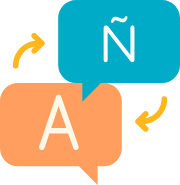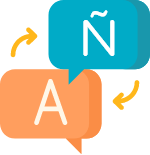Result for Documentation and evaluation
Learning community We thought about this section as a space to build a community in which we can share resources and learn from each other. We know that sometimes it is hard to find a tool or an ingredient that you can use that is appropriate for the kind of work […]
Share your work We know that the work that you do is great and deserves to be recognized. For that reason, we created this section to invite you to share with others across the country. Please share your experience, the lessons that you have learned, or share any other information related […]
Ask an expert This section is designed for those interested in getting an answer(s) to their questions related to general or specific aspects of program evaluation. Our workgroup, which consists of a group of evaluators and community-based practitioners, will work together to respond to your questions. Workgroup members
Resources We developed this final section as an additional resource for your work. Here you will find a series of tables that include links to websites, documents, webinars, and other tools that you might find helpful in expanding your knowledge around program evaluation. Resources designed for domestic and/or sexual organizations This […]
What is our theory of change? We have learned that we are not the ones who are going to end domestic violence in the Latin@ community; it is the community who will end domestic violence. All we need to do is put the work back into their hands. In this section, […]
How is the theory of change created? A Theory of Change (also known as the Pathway of Change) is a strategy that allows us to identify and explain all of the necessary steps and conditions required to create long-term changes in our community. The Theory of Change is a strategy that […]
What is community-centered evidence-based practice (EBP)? This section explores a community-centered EBP (evidence based practice) approach that we adapted along with many test-tasters, including practitioners, community members and other researchers/evaluators. This EBP approach is meant to align with the work of community-based, culturally-specific organizations that work alongside community members. We hope […]
Background on the building evidence toolkit In this section of our toolkit, we invite you to explore and learn about community-centered evidence. This is the foundation for how we think about evidence and documenting evidence. In other words, this section includes the special ingredients for our meals. In our case, our […]
Indigenous evaluation The value of documenting your program’s recipe through program evaluation is that you can adjust your ingredients or modify your steps for different community taste-testers. In this toolkit we described the utility of logic models for program evaluation and exploring what ingredients go into making your services or initiative. […]
Empowerment evaluation Empowerment evaluation supports program improvement by giving organizations and community members the tools to take ownership of the evaluation process. While there are similarities with participatory evaluation, empowerment evaluation has more emphasis on giving program staff, volunteers, and others involved in delivering a program or initiative (the chefs of […]









